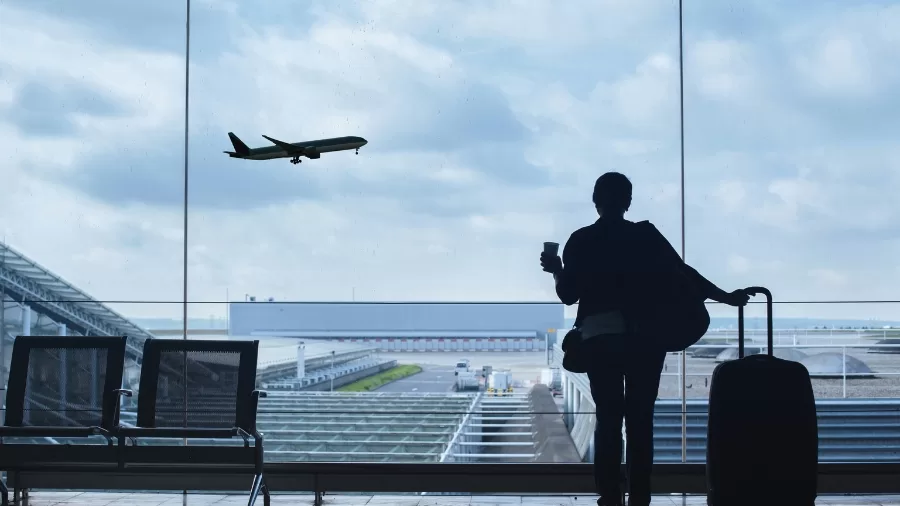Brand Strategy
The Loyalty Revolution: Why Travel Rewards Are Essential for Today’s Brands

- Travel rewards systems improve consumer loyalty by providing compelling incentives for recurring interactions and purchases.
- A well-structured rewards program that offers flexible redemption options and personalised experiences can dramatically boost brand perception and competitiveness.
- Successful examples, such as airline loyalty programs, demonstrate how intelligent travel rewards campaigns may generate income while also creating long-term customer connections.
In today’s increasingly competitive industry, firms from all industries are continuously looking for strategies to create consumer loyalty. Implementing robust travel rewards programs has shown to be a highly beneficial technique. Companies that offer tempting travel incentives might not only attract new clients but also strengthen ties with current ones.
The Allure of Travel Rewards
Travel rewards have a distinct attraction that piques the interest of customers. The possibility of redeeming loyalty points for thrilling travel experiences—whether a weekend vacation or an intercontinental adventure—is an effective motivator. The prospect of free or discounted travel piques customers’ interest, making them more inclined to engage with firms that provide these incentives.
Key Advantages of Travel Rewards Programs
The benefits of travel rewards programs go far beyond incentives. First and foremost, they dramatically increase consumer loyalty. When customers feel appreciated and valued through rewards, they are more likely to stick with a business and make repeat purchases. This sense of appreciation converts casual clients into loyal supporters.
Furthermore, travel incentive schemes improve customer engagement. Customers who track their points and miles are more likely to communicate with the brand via multiple channels such as social media, emails, and mobile apps. This enhanced connection not only builds a sense of community but also keeps the brand at the top of customers’ minds.
Furthermore, a well-executed travel rewards program can significantly improve a brand’s image. It demonstrates a dedication to client satisfaction and a readiness to go above and beyond. In a crowded market, an attractive travel rewards program can provide a crucial competitive advantage. Businesses can differentiate themselves from the competition by providing exclusive travel advantages, resulting in a dedicated customer base.
Strategies for Successful Travel Rewards Programs
To fully realise the benefits of travel incentives, organisations must implement certain tactics. A clear and transparent reward structure is crucial; customers should understand how to earn and spend points or miles. Flexibility in redemption possibilities is equally crucial. Offering a variety of options, including flights, hotel stays, vehicle rentals, and even cruises, caters to a wide range of consumer tastes.
Personalisation is another important component. Using data analytics, firms may adapt the travel rewards experience to individual clients. Companies that understand their customers’ preferences might provide personalised recommendations and exclusive incentives that resonate more profoundly with their target audience.
Forming strategic connections with travel companies can help to increase the program’s value. Exclusive deals and discounts for program members can attract new clients while also providing great value to existing ones. Furthermore, ensuring that the travel rewards program connects seamlessly with the broader loyalty program is critical. Customers may earn and use points on numerous platforms, streamlining their experience.
Case Study: The Success of Airlines’ Loyalty Programs
Airline loyalty programs demonstrate the effectiveness of travel rewards in practice. These programs provide a wealth of benefits, like as free flights and lounge access, and have effectively built devoted client bases. The outcomes speak for themselves: these strategies increase client retention while also generating significant revenue through auxiliary services. Airlines have proved that by investing in travel rewards, they can create long-term relationships with their customers while generating significant profits.
Conclusion
In an age where client loyalty is key, travel rewards have emerged as an essential tool for organisations looking to engage and keep their target audience. Companies that offer engaging travel incentives can develop loyalty, improve brand reputation, and, ultimately, generate revenue growth. A thoughtfully structured travel rewards program may maximise client loyalty, paving the road for long-term success in an increasingly competitive landscape.
Businesses may establish a loyal client base by understanding and implementing successful travel rewards schemes, which not only keep them engaged but also promote the brand, assuring its place in the marketplace for years.

















































